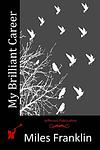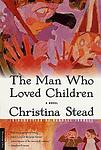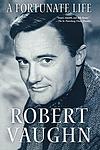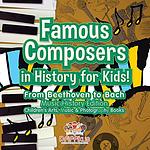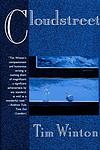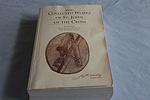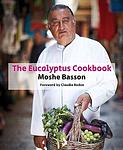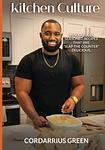15 Australian Classics for your Consideration
This is one of the 284 lists we use to generate our main The Greatest Books list.
-
For The Term Of His Natural Life by Marcus Clarke
"For The Term Of His Natural Life" is a gripping historical novel set in the early 19th century, following the life of Rufus Dawes, a young man wrongly convicted of a crime he did not commit. Transported to the brutal penal colony of Van Diemen's Land, Rufus endures unimaginable hardships, including harsh labor, cruel punishments, and the constant threat of death. As he navigates the treacherous world of convicts and corrupt officials, Rufus forms unexpected alliances and discovers the resilience within himself to fight for justice and freedom. This epic tale explores themes of injustice, redemption, and the indomitable human spirit in the face of adversity.
-
My Brilliant Career by Miles Franklin
The book follows the story of a headstrong and ambitious young woman named Sybylla, who dreams of escaping her rural life and becoming a writer. Set in late 19th century Australia, Sybylla faces societal expectations and struggles with her own desires for independence and self-expression. As she navigates through love, family, and societal pressures, Sybylla's journey becomes a reflection of the challenges faced by women in a patriarchal society, ultimately questioning the sacrifices one must make to pursue their dreams.
-
The Man Who Loved Children by Christina Stead
This novel explores the complex dynamics of the Pollit family, focusing on the relationship between the egotistical patriarch Sam and his idealistic daughter Louie. Set in Washington D.C. during the 1930s, the story provides a stark portrayal of a dysfunctional family, where Sam's delusional optimism and insensitivity clash with Louie's growing disillusionment and rebellion. The narrative delves into themes of family conflict, emotional abuse, and the struggle for individual identity within the confines of family expectations.
-
The Harp In The South by Ruth Park
"The Harp In The South" is a compelling novel that delves into the lives of the Darcy family, living in the slums of Sydney in the 1940s. Through the eyes of the young protagonist, Roie, readers witness the struggles, dreams, and resilience of a family trying to make ends meet amidst poverty, violence, and societal prejudices. With vivid descriptions and memorable characters, the book explores themes of love, sacrifice, and the pursuit of a better life, ultimately painting a poignant portrait of the human spirit in the face of adversity.
-
Voss by Patrick White
Set in 19th-century Australia, the novel follows a German explorer, Voss, as he leads a doomed expedition into the outback. Parallel to this, Voss develops a romantic relationship with Laura Trevelyan, a young woman he meets before his departure. Despite their physical separation, their spiritual and emotional connection deepens as Voss's journey becomes increasingly perilous. The narrative explores themes of obsession, the human condition, and the dichotomy between civilization and wilderness.
-
The Tyranny Of Distance by Geoffrey Blainey
"The Tyranny of Distance" explores the impact of geographical isolation on Australia's history, economy, and society. Blainey delves into how the vastness of the continent has shaped the country's development, from the challenges faced by early settlers to the struggles of maintaining connections with the rest of the world. Through a comprehensive analysis, the book highlights the unique circumstances and opportunities that arise from Australia's geographical position, ultimately offering a thought-provoking perspective on the nation's past and future.
-
Johnno by David Malouf
"Johnno" is a coming-of-age novel set in Brisbane, Australia, during the 1940s and 1950s. The story follows the life of the protagonist, Dante, as he navigates his complex friendship with his childhood friend, Johnno. Through their adventures, Dante explores themes of identity, love, and the search for meaning in a rapidly changing world. As the narrative unfolds, the novel delves into the complexities of Australian society, offering a poignant reflection on the challenges and transformations of growing up.
-
A Fortunate Life by A.B. Facey
"A Fortunate Life" is a memoir that chronicles the extraordinary life of a man who overcame immense hardships and adversity to find happiness and contentment. From his humble beginnings in rural Australia to his experiences as a soldier in World War I, the author shares his remarkable journey filled with poverty, loss, and resilience. Despite facing numerous challenges, he remains optimistic and grateful for the opportunities life has presented him, ultimately proving that a fortunate life is not defined by material wealth, but by the strength of the human spirit.
-
The Children's Bach by Helen Garner
"The Children's Bach" is a captivating novel that explores the complexities of family dynamics and the pursuit of happiness. Set in Melbourne, the story follows a group of interconnected characters as they navigate their relationships, dreams, and disappointments. Through beautiful prose and keen observations, the author delves into themes of love, loss, and the search for meaning in everyday life, creating a poignant and thought-provoking narrative.
-
Cloudstreet by Tim Winton
"Cloudstreet" is a sweeping family saga set in post-World War II Australia, following two families, the Pickles and the Lambs, who come to live together in a large, ramshackle house on Cloud Street over two decades. The story explores their struggles, triumphs, and the ways they are haunted and blessed by a mysterious spiritual presence. The novel is a celebration of endurance, unity, and the many forms of love, set against the backdrop of a changing Australia.
-
Night Letters by Robert Dessaix
"Night Letters" is a thought-provoking and introspective novel that follows the journey of a middle-aged man who embarks on a spontaneous trip to Venice after receiving a mysterious letter. As he explores the enchanting city, he reflects on his past, contemplates his present, and contemplates the meaning of life. Through beautifully crafted prose and vivid descriptions, the book explores themes of love, loss, identity, and the search for purpose, offering readers a captivating and philosophical exploration of the human experience.
-
Eucalyptus by Murray Bail
In this enchanting tale, a widower named Holland devises a unique plan to find a suitable husband for his daughter, Ellen. He declares that she will only marry the man who can correctly identify all the species of eucalyptus trees on his vast property. As suitors from far and wide arrive to take on the challenge, Ellen finds herself captivated by a mysterious stranger who weaves magical stories about each tree. As the competition unfolds, the power of storytelling and the beauty of nature intertwine, leading to unexpected twists and turns in this mesmerizing exploration of love, identity, and the power of the imagination.
-
True History of the Kelly Gang by Peter Carey
This historical novel is a fictionalized account of the life of Australian outlaw Ned Kelly, told in the form of a journal written to his daughter. The narrative explores Kelly's life from childhood, his family's struggles with poverty and the law, his involvement in horse thievery, and his eventual formation of the Kelly Gang. The story culminates with the gang's infamous standoff with the police at Glenrowan, providing a humanizing perspective on a figure often portrayed as a ruthless criminal.
-
Carpentaria by Alexis Wright
"Carpentaria" is a sprawling and epic novel set in the fictional town of Desperance, located in the Gulf of Carpentaria in northern Australia. The story follows the lives of the powerful Phantom family, particularly the enigmatic matriarch Norm Phantom, and their interactions with the white mining company that threatens their ancestral lands. Filled with magical realism, indigenous mythology, and social commentary, the book explores themes of colonization, identity, and the struggle for survival in a harsh and unforgiving landscape.
-
The Slap by Christos Tsiolkas
"The Slap" is a thought-provoking novel that explores the repercussions of a single incident at a suburban barbecue. When a man slaps a misbehaving child who is not his own, it sets off a chain of events that unravels the lives of the characters involved. Told from multiple perspectives, the book delves into themes of family, morality, and the complexities of modern society, challenging readers to question their own beliefs and values.
The Sydney Morning Herald, 15 Books
15 Australian books that every Australian can enjoy if they want to understand our literature, our country and ourselves. Susan Wyndham, the Herald's literary editor consulted friends, colleagues and Australian Classics by Jane Gleeson-White and The Macquarie PEN Anthology of Australian Literature, edited by Nicholas Jose and others.
Added 6 months ago.
This list has a weight of 68%. To learn more about what this means please visit the Rankings page.
Here is a list of what is decreasing the importance of this list:
- List: only covers 1 specific country
- Voters: are mostly from a single country/location
If you think this is incorrect please e-mail us at [email protected].

